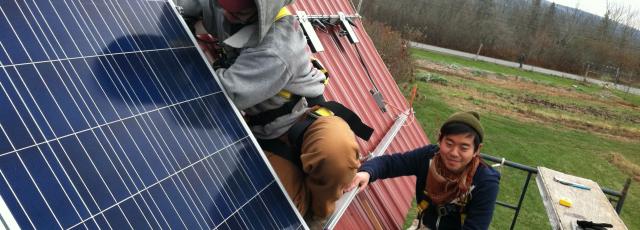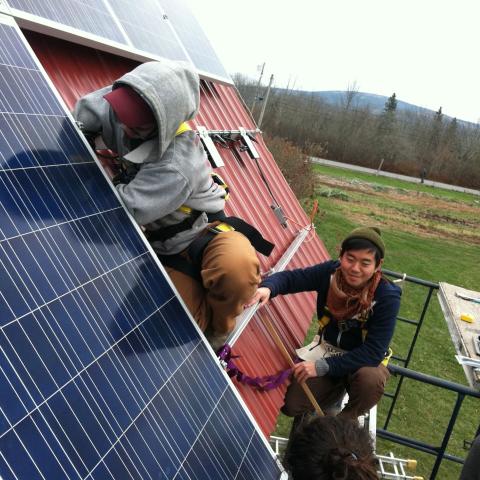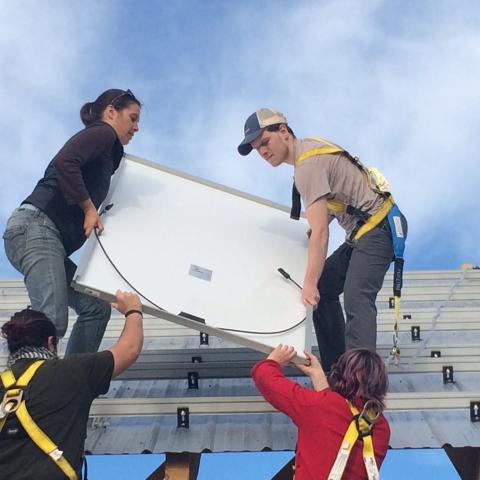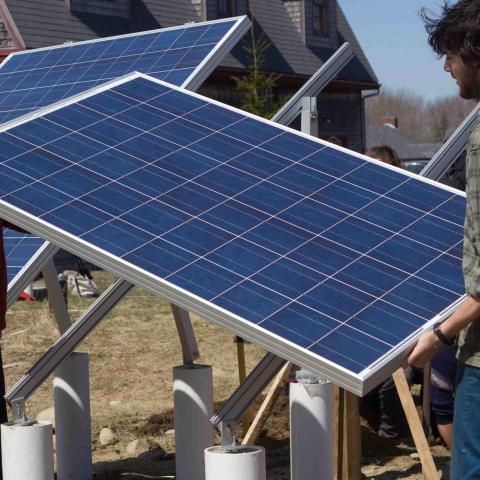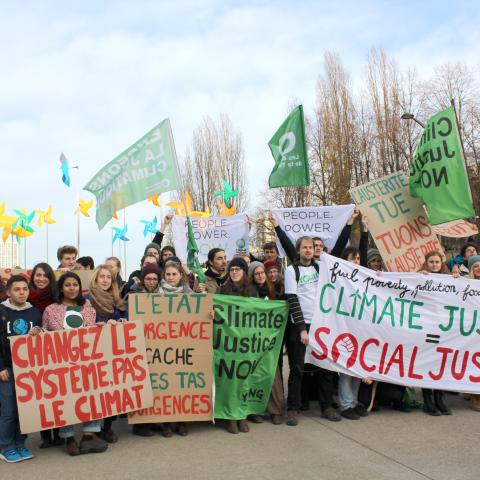Grant Year
2019, 2017, 2016Project Leader/s
Project Description
Urgency. If there’s one word that sums up the “why now” behind the new Environmental Leaders Initiative at College of the Atlantic (COA), this is it. “After our students participated in the Paris meeting of the United Nations Framework Convention on Climate Change (UNFCCC), they expressed frustration with the pace of negotiations, and told us of their desire to get to work immediately on implementing local climate solutions,” recalls Dr. David Feldman, Professor of Physics and Mathematics. “They made it clear to us that the time was right to expand COA’s energy/climate program, and to help them make connections between local and global environmental work. Their loudest request was for training in skills that would increase their impact now.”
For some time, Feldman and his colleagues Dr. Anna Demeo, Director of Energy Education and Operations and Lecturer in Physics, and Dr. Doreen Stabinsky, Professor of Global Environmental Politics, had been seeking to expand their work in preparing students for impacting the energy/climate change area. “When we received the Thoreau Foundation’s invitation to submit a proposal, we were immediately excited. The Foundation shares our commitment to providing transformative environmental educational opportunities that shape students into future leaders.” And so they conceived of the Henry David Thoreau Environmental Leaders Initiative, an integrated program that leverages the kind of multi-disciplinary education for which College of the Atlantic is known.
The Initiative educates students in the math and physics of energy generation and consumption, international environmental politics, and the legal and policy issues surrounding climate change, while offering experiential learning opportunities in effective communication, project management, organizational leadership, public speaking, strategic planning, and cross-cultural collaboration. Students develop and lead local renewable energy projects, as well as actively engage in the politics of climate change by participating in the yearly meetings of the UNFCCC.
Augmenting their classroom and participatory learning, students organize and participate in peer-to-peer training and collaborative skills-building workshops, known as Thoreau Gatherings. At these gatherings, students develop the communication, organizational, and leadership skills that they will need to succeed as environmental leaders. Professional environmental leaders and policy makers, many of whom are young COA alumni/ae, also provide mentorship and networking opportunities.
“Ultimately, we want to inspire and galvanize participants to become powerful and effective advocates for the environment, and we are convinced of the power and efficacy of participatory learning as a path toward environmental leadership. The most powerful education has outcomes that are the most difficult to predict, and so we can’t yet know the particular paths our students will take. For us, the best indication that this initiative has been a success will be for us to be surprised and amazed by the directions our students go and the novel ways they work to steward our environment.”
